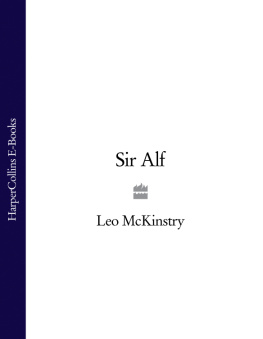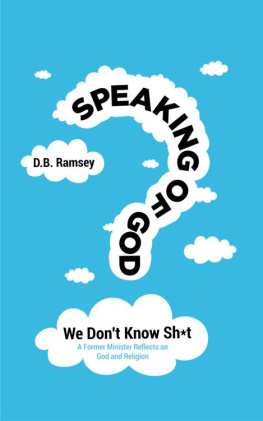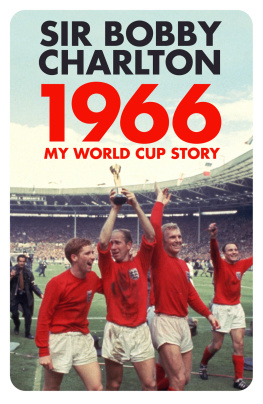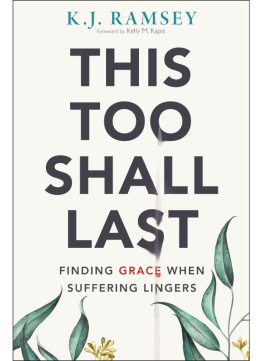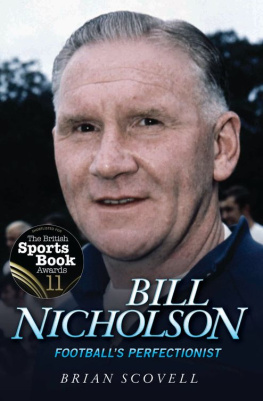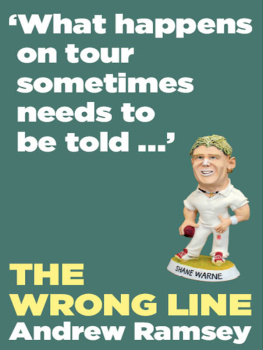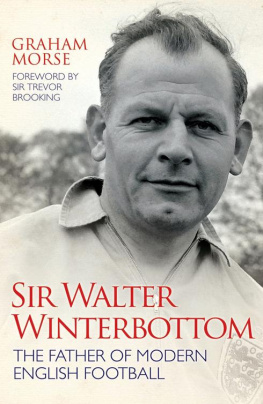This book is dedicated to the memory of Dermot Gogarty, 1958-2005
Another man of dignity, courage and leadership
Wembley, 30 July 1966. Amid scenes of jubilation, Geoff Hurst slams the ball into the top left-hand corner of the West German net. After a pulsating match, England are only seconds away from winning the World Cup. But as wave upon wave of ecstatic cheering echoes throughout the Wembley stadium, the England manager remains seated on the bench, showing not a flicker of emotion.
Sir Alf Ramseys almost superhuman calmness at the moment of victory has become one of the iconic images of the glorious summer of 1966. For all his outward imperturbability, no one had greater cause to rejoice than him. He was the true architect of Englands triumph, the man who had moulded his players into a world-beating unit. The experts and press had mocked when he had declared, soon after his appointment to the national job, that England would win the World Cup. After 1966, he was never laughed at again. Yet Ramsey was acting entirely in character on that July afternoon at Wembley. In his behaviour, he demonstrated the very qualities that helped to make him such a superb manager: his majestic coolness under pressure; his natural modesty which meant that he always put his players achievements before his own; his innate dignity and authority.
Since the World Cup victory, Sir Alf Ramsey has rightly been regarded as the greatest of all British football managers, winning at every level of the game. Through his tactical awareness, motivational powers and judgment of ability, he not only turned England into World Champions, but also, perhaps even more incredibly, he took unfashionable Ipswich Town from the lower reaches of the old Third Division South to the First Division title in the space of just six years. No other manager has been able to equal this record. Sir Alex Ferguson may have won a boardroom-full of trophies at Old Trafford, but he has been almost untested on the highest international stage. Similarly Sir Matt Busby, Brian Clough and Bob Paisley all gained the English championship and the European Cup, but none of them managed any national side, in Cloughs case to his bitter regret, having been turned down for the England job in 1977. Bill Shankly, the legendary boss at Anfield, and Stan Cullis, the iron manager at Molineux, each won three league titles and two FA Cups, but, again, their excellence was confined to the domestic arena. Of international British managers, Jack Charlton may have worked a near miracle with the Republic of Ireland but he could not do the same with any of his clubs, nor could Billy Bingham, who took modest Northern Ireland to successive World Cups in the eighties. Perhaps the man who comes closest to Ramsey was one of his successors at Portman Road, Sir Bobby Robson, who in his long and honourable career won the FA Cup and UEFA Cup with Ipswich Town, the Cup Winners Cup with Barcelona and two domestic championships with both PSV Eindhoven and Porto, as well as taking England to the semi-finals of the World Cup in 1990. But the greatest prize eluded him.
For all his extraordinary breadth of achievement, however, Sir Alf Ramsey has always been an elusive figure, an enigma whose life story has remained shrouded in mystery. A private, shy man, he was never at ease with the limelight and throughout his career had an awkward relationship with the media. Even those who worked with him for years, such as his secretary at Ipswich, Pat Godbold, or his longest-serving England player, Bobby Charlton, say that they never got to know him. Partly because of his insecurities about his humble upbringing, he built a protective shield around himself. In contrast to the expansive Sir Bobby Robson, who has written at least four versions of his autobiography, Alf never produced any memoirs, nor did he give many revealing interviews to the press.
There have been three previous books about Sir Alf, of varying quality. In 1970, the journalist Max Marquis wrote a thin, viciously skewed account, Anatomy of a Manager, which was based on recycling negative press stories about Sir Alf. It was hysterical in its vituperation, limited in its scope. Another book, England: The Alf Ramsey Years, by Graham McColl, published in 1988, dwelt entirely on his record as manager of the national team, though it did have the seal of Ramseys approval. A more comprehensive biography, Winning Isnt Everything, was written in 1998 by Dave Bowler, who has also produced a superb life of Alfs nemesis at Tottenham Hotspur, Danny Blanchflower. Bowlers portrait was balanced and used much original testimony, and was particularly good on Alfs tactical innovations. Yet it still left many aspects of Sir Alfs life and career uncovered.
By dint of extensive research and interviews, I have sought to provide a fuller, more rounded portrait of this remarkable figure. I have been able to unearth new information about his upbringing, his marriage, his early social life, particularly when he was a player at Spurs, his relationship with his England team and the circumstances surrounding his sacking. During my research, I was intrigued to learn of the real reasons why England were knocked out of the World Cup in Mexico in 1970, when Sir Alf displayed a rare but disastrous neglect of certain logistical arrangements.
I have aimed to write more than just a conventional biography. By placing Ramsey in his historical context, I have also sought to analyse professional football and the fabric of British society over the span of his life. One of the many appealing features of Sir Alfs story is the way it covered a revolution not only in soccer but also in social attitudes. The labourers son from Dagenham witnessed the end of the age of deference, the abolition of the maximum wage, the rise of the superstar player, the demise of amateur administrators, the collapse of rigid class structures, the first majority Labour government, the arrival of the permissive society and the disappearance of Empire. Ramsey himself, as a traditionalist in his personal outlook but a revolutionary on the soccer field, appeared to embody that fluid climate of resistance and change.
In helping me to cover this material, I owe a large debt to many people. A great number of ex-England and Ipswich footballers, who were managed by Alf, agreed to give interviews for this book, so I would like to record my thanks to: Jimmy Armfield, Alan Ball, Gordon Banks, Barry Bridges, Sir Trevor Brooking, Allan Clarke, Ray Clemence, George Cohen, John Compton, Ray Crawford, Martin Dobson, Bryan Douglas, John Elsworthy, the late Johnny Haynes, Ron Henry, Norman Hunter, Brian Labone, Jimmy Leadbetter, Francis Lee, Roy McFarland, Ken Malcolm, Gordon Milne, Alan Mullery, Andy Nelson, Maurice Norman, Mike OGrady, Terry Paine, Alan Peacock, Mike Pejic, Ted Phillips, Fred Pickering, Paul Reaney, Joe Royle, Dave Sadler, Peter Shilton, Nobby Stiles, Ian Storey-Moore, Mike Summerbee, Derek Temple, Peter Thompson, Colin Todd, Tony Waiters and Ray Wilson. I must also express my gratitude to the many Southampton, Spurs and England footballers who gave me the benefit of their views about playing alongside Alf: Eddie Baily, Ted Ballard, Ian Black, Eric Day, the late Ted Ditchburn, Terry Dyson, Stan Clements, Bill Ellerington, Sir Tom Finney, Alf Freeman, Mel Hopkins, Tony Marchi, Arthur Milton, Derek Ufton and Denis Uphill. Ed Speight, a Dagenham-bred youth player at Spurs during Alfs last days at White Hart Lane, generously showed me some of his correspondence with Alf.
I am, in addition, grateful to those journalists who gave me their views of Alf: Tony Garnett, Brian James, Ken Jones, David Lacey, Hugh McIlvanney, Colin Malam, Jeff Powell, Brian Scovell and Martin Tyler. I am especially indebted to Nigel Clarke, who knew Alf for more than 30 years and cowrote his column for the
Next page
